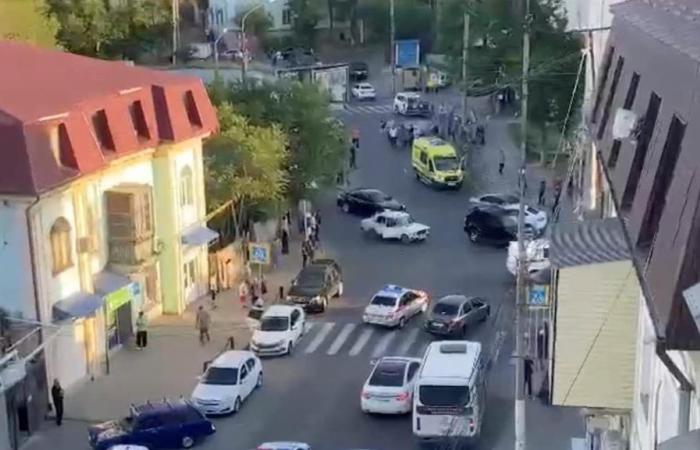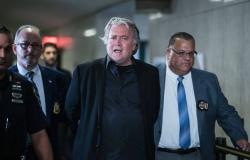Four “attackers” were killed on Sunday by police in Dagestan, a republic in the Russian Caucasus where armed men carried out deadly attacks against churches and a synagogue, local authorities announced. A priest and 15 police officers were killed in acts described as “terrorist”.
The attacks took place in the capital of the Russian republic of Dagestan, Makhachkala, and the coastal city of Derbent.
Dagestan is a predominantly Muslim Russian region neighboring Chechnya, also close to Georgia and Azerbaijan. Anti-terrorist operations are regularly announced there by the Russian authorities.
The attacks targeted two Orthodox churches, a synagogue and a police checkpoint
, announced the Russian Anti-Terrorism Committee, cited by the Ria Novosti agency. Jewish representatives, including the Russian Jewish Congress, said a second synagogue was also attacked.
A 66-year-old Russian Orthodox Church priest was killed in Derbent, authorities said. The death of six police officers was also announced by the Dagestan Interior Ministry.
Authorities later said a National Guard officer also died and another police officer died of his injuries.
A total of 16 people, including 15 police officers, were injured and hospitalized, according to the ministry.
Terrorist attack “
Armed individuals also opened fire on a vehicle carrying police officers, injuring one of them, in Sergokala, a village located between Makhachkala and Derbent, the local Interior Ministry told Russian agencies.
Open in full screen mode
Gunshots were heard in the streets of Makhachkala, Dagestan, forcing police to intervene.
Photo: Reuters / photo obtained by Reuters
There is no evidence to determine the motivations or identity of the perpetrators of these attacks, which appear to be coordinated.
The Russian Anti-Terrorism Committee announced in the evening the end of the phase active
of the anti-terrorist operation in Derbent and indicated that two attackers had been killed.
The police also eliminated four attackers in Makhachkala
according to the Dagestan Interior Ministry.
The Russian Investigative Committee said it had opened a criminal investigation into terrorist acts
without further details.
Synagogues in Derbent and Makhachkala were burned, according to the chairman of the public council of Jewish communities of the Russian Federation, Boruch Gorin.
Images, reported by Russian media, showed a burning building, presented as a synagogue.
In other videos, we could hear gunshots in the streets of Makhachkala, where an imposing police force was deployed.
The authenticity of these images could not be verified by theAFP immediately.
The leader of Dagestan, Sergei Melikov, claimed that strangers tried to destabilize society
Sunday night.
Patriarch Kirill, head of the Russian Orthodox Church and staunch supporter of the Kremlin, assured that theenemy
sought to destroy interreligious peace
in Russia.
His goal is to plant the seeds of hatred
he denounced, without naming those responsible.
Recurring attacks
In October, riots hostile to Israel broke out at Makhachkala airport.
A crowd of men had invaded its tarmac, amid tensions across the world linked to the conflict between Israel and Hamas, when a plane from Israel landed.
Russia has been targeted on multiple occasions by attacks claimed by the jihadist organization Islamic State (IS), even if its influence remains limited in the country.
In March, an attack claimed by theNO at Crocus City Hall on the outskirts of Moscow killed more than 140 people.
Open in full screen mode
The Crocus City Hall performance hall after the attack last March. (Archive photo)
Photo : afp via getty images / STRINGER
Last weekend, several members ofNO were killed after taking two prison officers hostage in a prison in southern Russia, authorities said.
Russia grappled with an Islamist rebellion in the early 2000s in the Caucasus, a movement born from the first conflict against separatist Chechnya in 1994-1996. It had been defeated by Russian federal forces and, in recent years, armed incidents there have been rare.
Nearly 4,500 Russians, particularly from the Caucasus, fought alongsideNO in Iraq and Syria, according to official figures.






